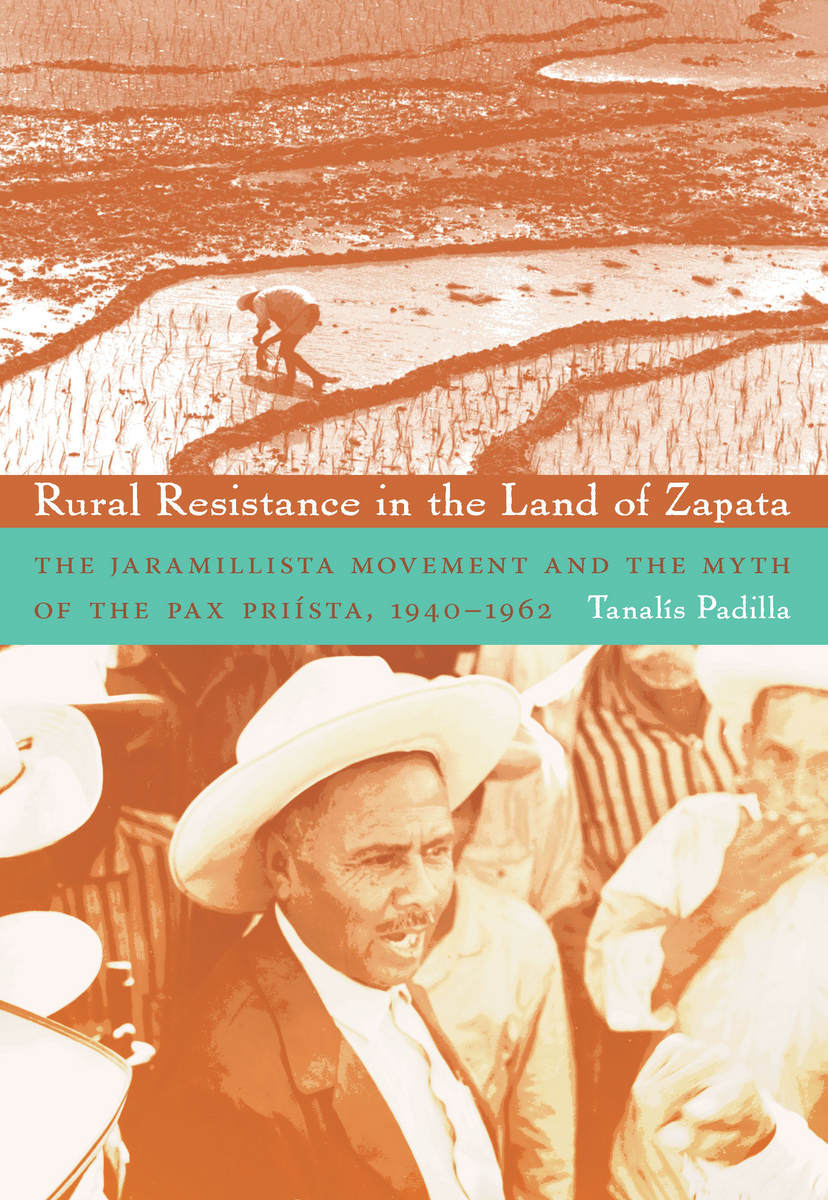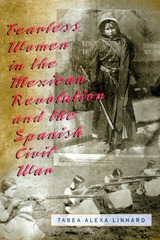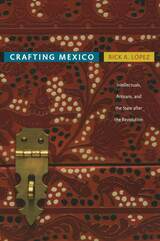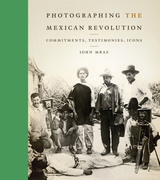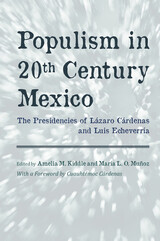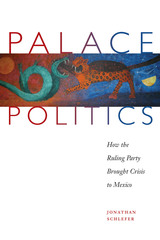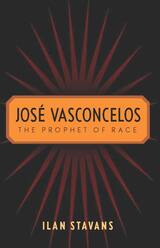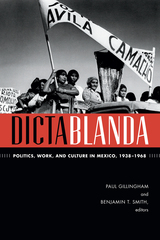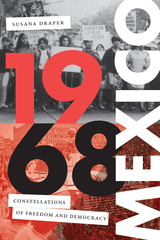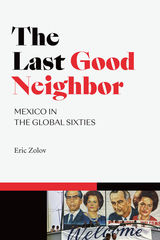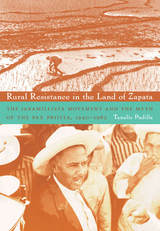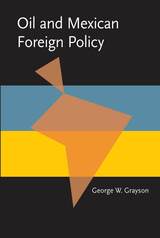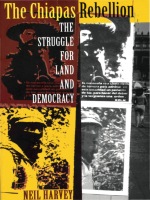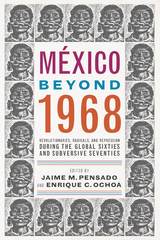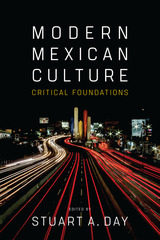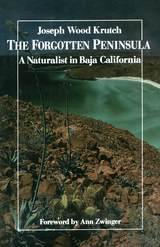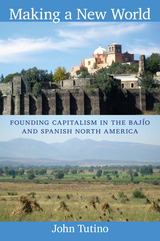“[A] nuanced and well-written book. . . . Padilla’s recognition both of the flaws in the single party system and the prolonged resistance to it helps complicate any neat division between an orderly period of industrial growth and relative social peace from 1940-1968, and one of prolonged crisis that followed. This book should be required reading for scholars wishing to think more deeply about such issues.” - Samuel Brunk, A Contracorriente
“This is a concise recapitulation of little-known events during the PRI’s heyday. It is truly a myth-breaker.” - Jeffrey K. Lucas, Left History
“One of the great strengths of this well-written book is that the author places the different periods in the regional history of peasant activism in Morelos— ‘the land of Zapata’—in the wider context of (inter)national developments.” - Wil G. Pansters, European Review of Latin American and Caribbean Studies
“[Rural Resistance in the Land of Zapata] is valuable, pioneering. . .significantly advances debate on the fundamental nature of postrevolutionary Mexico.” - Paul Gillingham, The Americas
“It is tempting to ask whether anything ‘new’ can possibly be added to the ‘new’ cultural history of Mexico, but Padilla delivers. . . . [N]early all of the powerful histories that have transformed our understanding of Mexico in recent years either conclude around 1940 or begin after 1968. This leaves a substantial gap, and Padilla’s book goes a long way to fill it. . . . As nostalgia for the mythical peace of PRI rule gains force in Mexico this year, Padilla’s reminder could not have come at a better time.” - Aaron Bobrow-Strain, American Historical Review
“Rural Resistance in the Land of Zapata sets a new standard for historical studies of Mexican social protest and state repression after 1940. Drawing on rich campesino testimonies and state surveillance reports, Tanalís Padilla illuminates the seamy underbelly of the ‘Golden Age’ decades, puncturing any lingering, hegemonic notions of the PRI’s ‘perfect dictatorship.’ More than an engrossing and poignant account of the Jaramillistas’ unremitting electoral and insurgent struggles to compel the Official Party to fulfill its agrarian promises, this volume provides critical insights into the nation’s broader political experience and the dynamic nature of Latin American peasant movements.”—Gilbert M. Joseph, co-editor of Everyday Forms of State Formation: Revolution and the Negotiation of Rule in Modern Mexico
“Rural Rebellion is a valuable contribution to our understanding of this less-studied era of Mexican rural history. It is a well-researched and engaging book that should stimulate great interest among scholars of Mexican history, more generally, Latin Americanists and researcher of rural social movements and insurrections.” - Lynn Horton, Mobilization
“Rural Resistance in the Land of Zapata sets a new standard for historical studies of Mexican social protest and state repression after 1940. Drawing on rich campesino testimonies and state surveillance reports, Tanalís Padilla illuminates the seamy underbelly of the ‘Golden Age’ decades, puncturing any lingering, hegemonic notions of the PRI’s ‘perfect dictatorship.’ More than an engrossing and poignant account of the Jaramillistas’ unremitting electoral and insurgent struggles to compel the Official Party to fulfill its agrarian promises, this volume provides critical insights into the nation’s broader political experience and the dynamic nature of Latin American peasant movements.”—Gilbert M. Joseph, co-editor of Everyday Forms of State Formation: Revolution and the Negotiation of Rule in Modern Mexico
“Rural Rebellion is a valuable contribution to our understanding of this less-studied era of Mexican rural history. It is a well-researched and engaging book that should stimulate great interest among scholars of Mexican history, more generally, Latin Americanists and researcher of rural social movements and insurrections.”
-- Lynn Horton Mobilization
“[Rural Resistance in the Land of Zapata] is valuable, pioneering. . .significantly advances debate on the fundamental nature of postrevolutionary Mexico.”
-- Paul Gillingham The Americas
“[A] nuanced and well-written book. . . . Padilla’s recognition both of the flaws in the single party system and the prolonged resistance to it helps complicate any neat division between an orderly period of industrial growth and relative social peace from 1940-1968, and one of prolonged crisis that followed. This book should be required reading for scholars wishing to think more deeply about such issues.”
-- Samuel Brunk A Contracorriente
“It is tempting to ask whether anything ‘new’ can possibly be added to the ‘new’ cultural history of Mexico, but Padilla delivers. . . . [N]early all of the powerful histories that have transformed our understanding of Mexico in recent years either conclude around 1940 or begin after 1968. This leaves a substantial gap, and Padilla’s book goes a long way to fill it. . . . As nostalgia for the mythical peace of PRI rule gains force in Mexico this year, Padilla’s reminder could not have come at a better time.”
-- Aaron Bobrow-Strain American Historical Review
“One of the great strengths of this well-written book is that the author places the different periods in the regional history of peasant activism in Morelos— ‘the land of Zapata’—in the wider context of (inter)national developments.”
-- Wil G. Pansters European Review of Latin American and Caribbean Studies
“This is a concise recapitulation of little-known events during the PRI’s heyday. It is truly a myth-breaker.”
-- Jeffrey K. Lucas Left History
